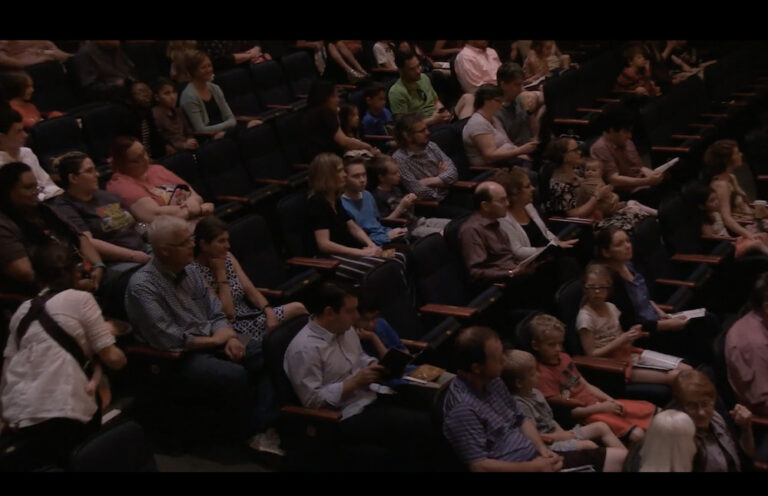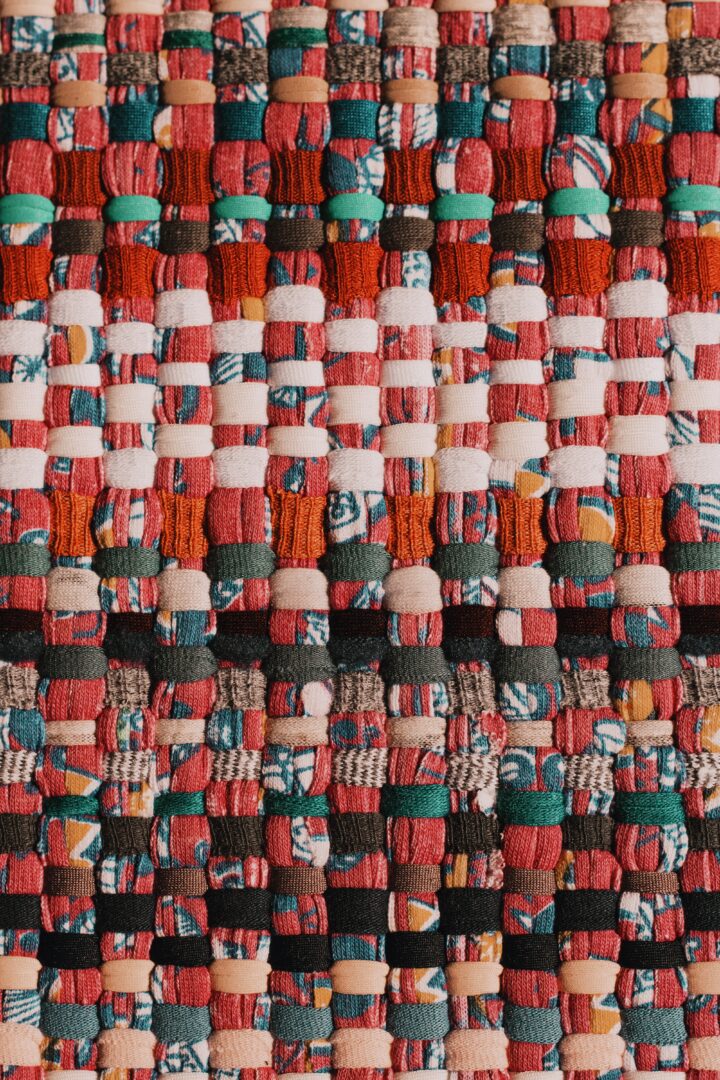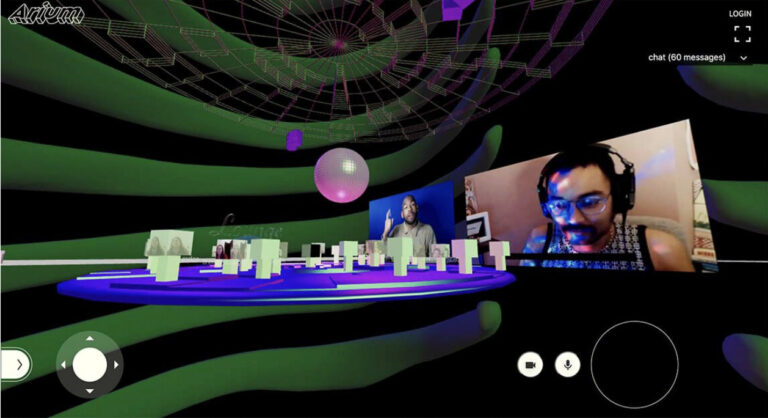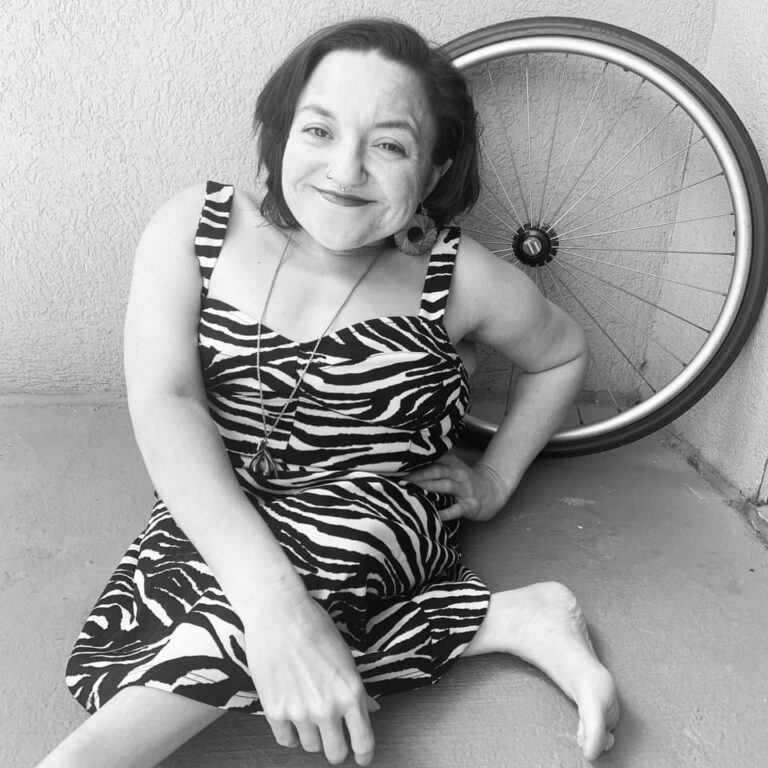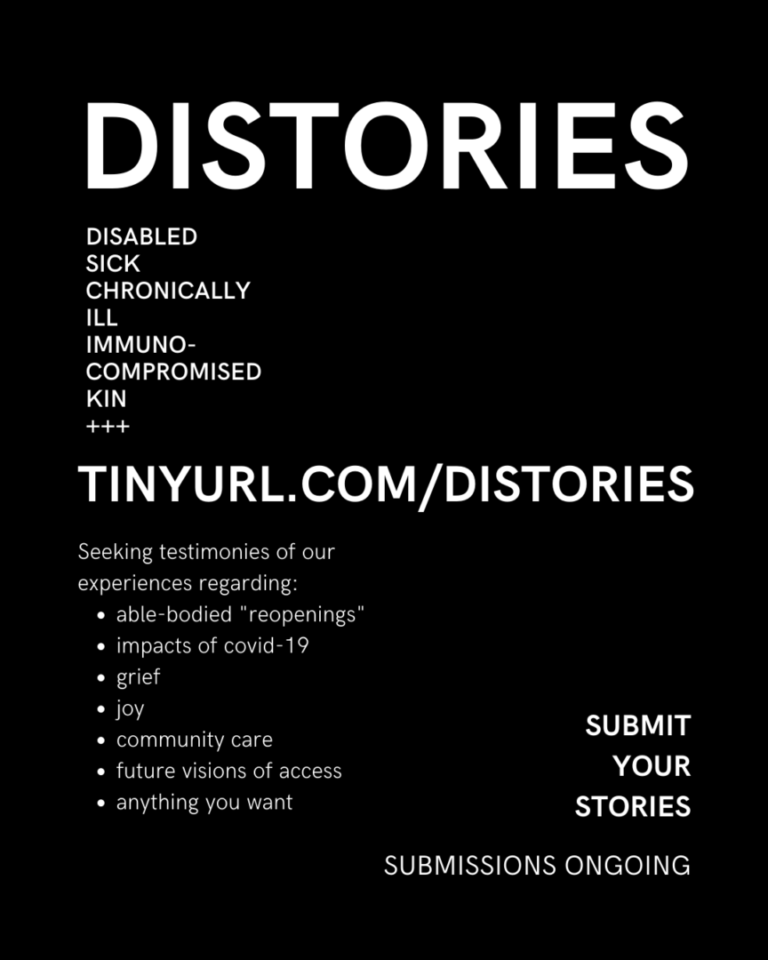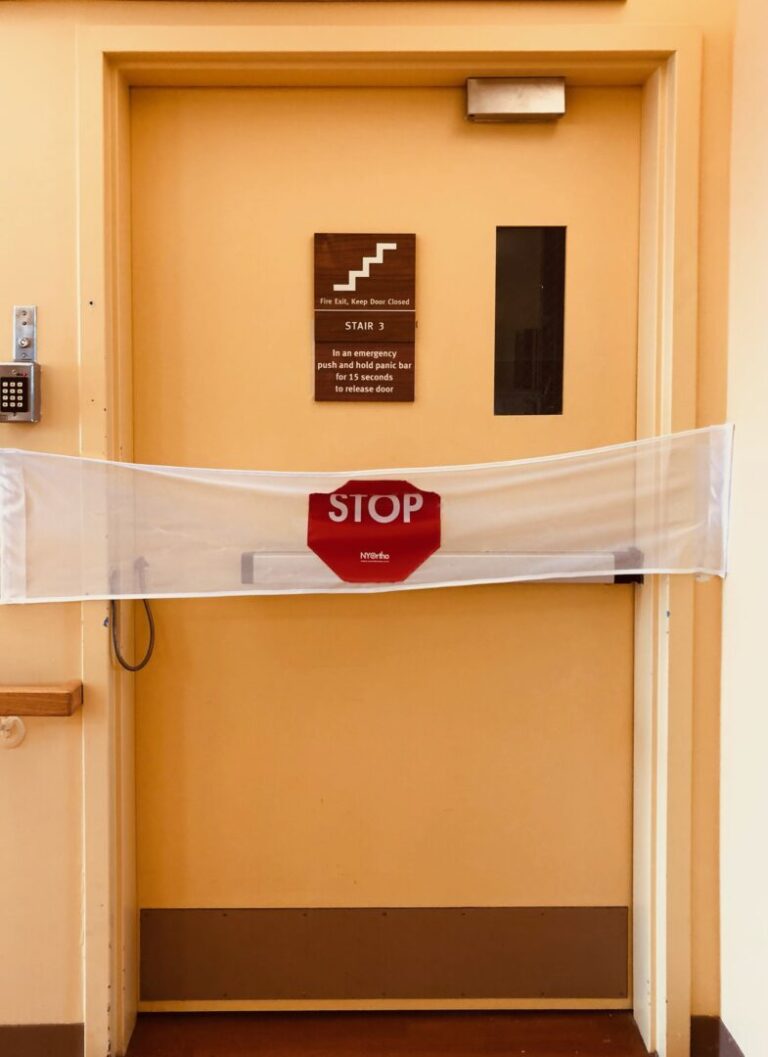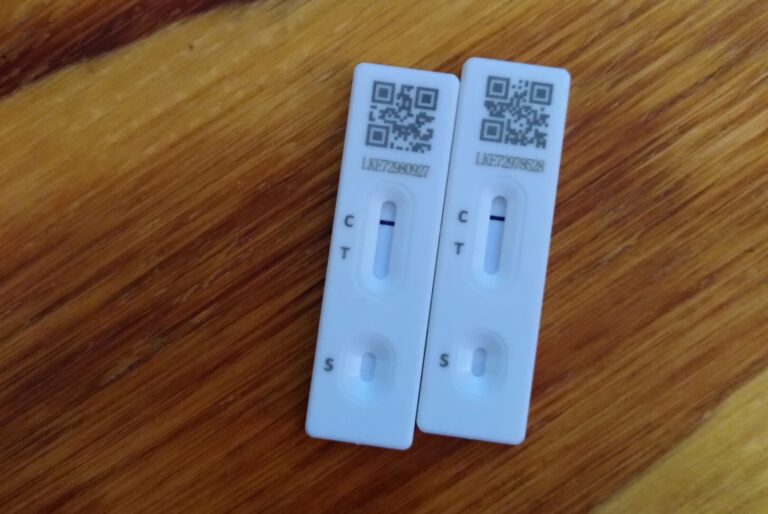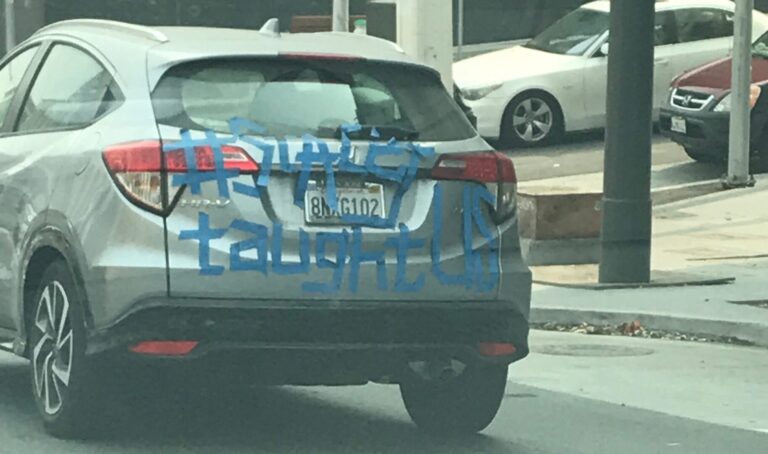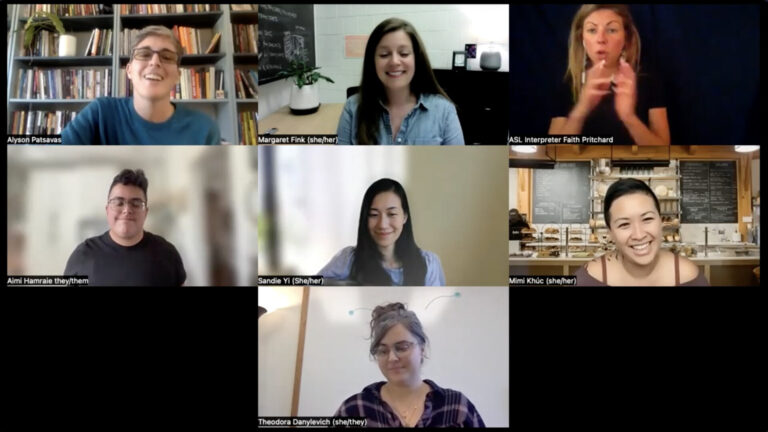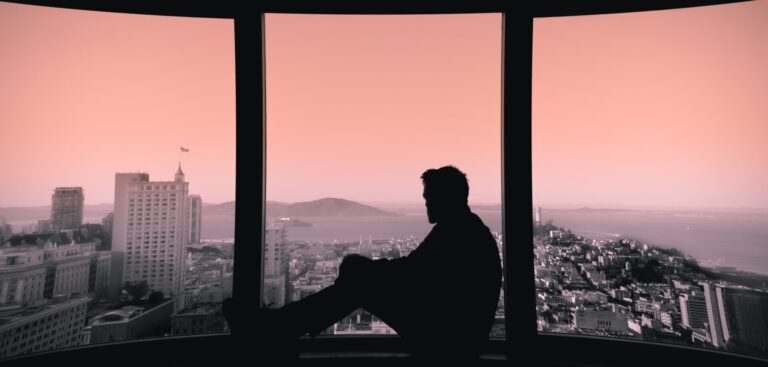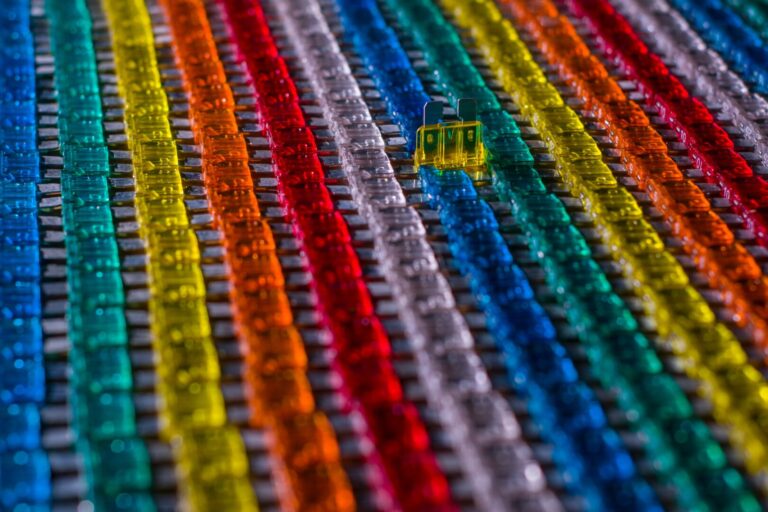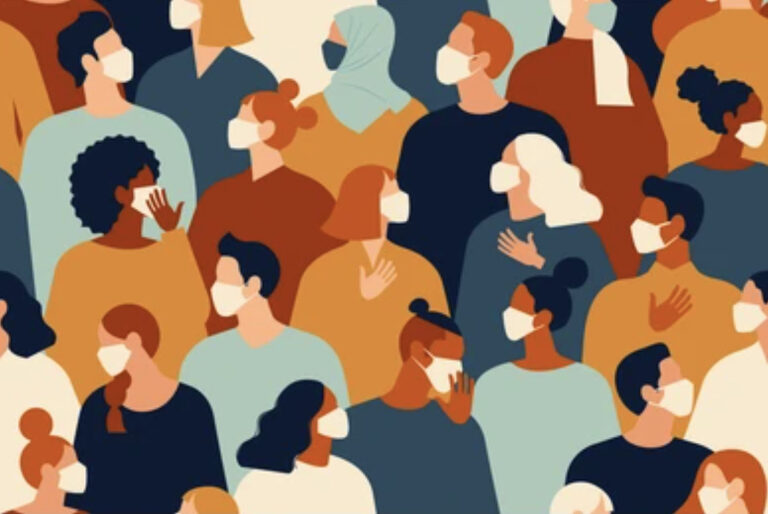Andrew Culp and the Cultural Studies Association’s Performance Working Group Co-Chair Hui Peng discuss “relaxed performance” with Leigh Jackson, Director of Accessibility & EDI Programming at People’s Light outside of Philadelphia, and Dr. Hannah Simpson, Lecturer at the University of Edinburgh and author of Samuel Beckett and Disability Performance (Palgrave, 2022). This podcast is accompanied by a scholarly commentary by Patrick McKelvey.
Keyword: disability
Let’s Relax!
Andrew Culp and the Cultural Studies Association’s Performance Working Group Co-Chair Hui Peng discuss “relaxed performance” with Leigh Jackson, Director of Accessibility & EDI Programming at People’s Light outside of Philadelphia, and Dr. Hannah Simpson, Lecturer at the University of Edinburgh and author of Samuel Beckett and Disability Performance (Palgrave, 2022). This podcast is accompanied by a scholarly commentary by Patrick McKelvey.
With Grief and Joy — Crip Pandemic Life: A Tapestry, Part II
This second installment of “Crip Pandemic Life: A Tapestry” opens with a reflection on transformative access and its visioning work. We weave this discussion through not only the eight new pieces found within this issue, but also through a reflection on the practices of access and care that enabled the writing, editing, and publication process itself. We conclude with two artifacts: The first is the “Accessible Knowledge Production Manifesto” that emerged as a collectively authored set of demands generated at a workshop we held in connection to the launch of our first installment of “Crip Pandemic Life.” The second is a link to a resource list, “Continuing Threads and Proliferations; Crip Pandemic Life Archive,” compiled by Corbin Outlaw, which links out to other pandemic projects documenting crip, disabled, chronically-ill, mad, and neurodivergent experiences, particularly highlighting experiences not captured within our tapestry of crip pandemic life.
Remote Access: A Crip Nightlife Party
Remote Access is a disability nightlife event informed by disability history, technology, and artistry. At the start of the COVID-19 pandemic, a collective of disabled artists and designers created an event to showcase how disabled people often participate in social life from our homes and beds. This contribution offers a living archive of the party and its evolution, as the planners created protocols for collective access through methodologies such as participatory audio description and live description of musical sound. We discuss how each new event offered opportunities for designing new practices based on disabled knowledge and expertise. As a result, the series of Remote Access nightlife parties became an ongoing opportunity to develop iterative accessibility protocols and community standards for remote/digital participation.
Corona Look of the Day: Social Media Posts About Disabled Beauty and Resistance in the Time of COVID-19
The authors created a photo and essay series entitled “Corona Look of the Day.” Each day we took photos of outfits paired with colorful makeup and inspired text descriptions about the beauty in disability. These posts were formulated as resistance to the eugenic discourse pervading the early days of the pandemic that argued disabled and elderly deaths were acceptable and probable. In contrast to this bleak assessment, this artistic series sought to affirm disability through uplifting portraiture.
DISTORIES
DISTORIES is a small open-source and open-access Instagram zine project, gathering testimonies from disabled contributors. This project began in the context of the summer of 2021, as mask mandates and general precautions around COVID-19 were being relaxed. Each chapter of the zine is introduced by a question, framing stories and snapshots of experience as well as demands, affirmations, and dreams shared by contributors. The project was stewarded by geunsaeng ahn from September 2021 to July 2022.
The Dedication: Leaving Evidence of Life, Death, Care, and Confinement During COVID-19
In 2020, the COVID-19 pandemic exploded and nursing homes rapidly became overwhelmed with disease, death, and despair. During this time, I learned Sylvia, an old woman with dementia I had befriended, was one of the many old and disabled people confined in nursing homes who did not survive. In this reflective and part personal, part scholarly essay, I leave evidence of and for Sylvia and the nearly 200,000 old and disabled people and care workers who contracted COVID-19 and died within the confines of neoliberal, profit-driven long-term care institutions. Disability justice activist Mia Mingus writes, “We must leave evidence. Evidence that we were here, that we existed, that we survived and loved and ached.” Leaving evidence is a political act, a form of resistance in an ableist word. And yet leaving evidence is particularly challenging in the context of dementia, care, confinement, and death—making it even more important, more urgent. Building on Ellen Samuels’ assertion, “Crip time is grief time,” I consider how mourning Sylvia and countless other nursing home deaths, interwoven with my own experiences of distress, yet also solidified my need to survive, might leave evidence and keep working toward an abolitionist future—one in which old and disabled women like Sylvia, like my future self, might thrive.
Only Together, We Flourish: The Importance of Friendship and Care in Navigating Anti-Asian Hate and Shielding During COVID-19
The COVID-19 pandemic and the response of the government of the United Kingdom have exacerbated deep-seated inequalities. People of color and disabled people have been disproportionately impacted during the pandemic. This essay has two authors, Sophie, a white disabled academic from England, and Denise, an Asian music therapist from Hong Kong; we are friends who live in Bristol. By examining our understanding of the pandemic through our lived experiences and identities, we provide transparency for engaging with our individual and shared perspectives. We use Mia Mingus’s concept of access intimacy to characterize our friendship as one which prioritizes accessibility and a deep understanding of each other’s realities whilst respecting and learning from our differences. We explore the idea of vulnerability and what it means to be made vulnerable during COVID, as well as the notion of ungrievability. Through engaging the concept of embodied belonging we address care as a necessity in response to all the ways in which this pandemic has highlighted and exacerbated vulnerability, ungrievability, and challenges to finding a sense of belonging. We demonstrate solidarity, empathy, joy, love, respect, and a deep reverence for each other and our journeys through hostile environments, providing a counterpoint to the neoliberal structures of oppression as we find ways to live, create, and flourish.
For Graduate Students, When the Sadness is Unbelievable: How to Research and Write If We Must When the World is on Fire
This essay is a meditation on the place of grief in graduate student life, an accounting for the ways that the pandemic has shaped research and the work that disabled graduate students have had to do to stay afloat. I begin by meandering through the grief of a family bereavement into the range of other kinds of crip grief that emerged at the start of the COVID-19 pandemic. Thinking with grief across scales, I ask the following questions: what might it mean to research and to write when our fields of inquiry shift even as they are being studied? How might we hold on to hope as a political practice even as undercurrents of grief work to wash it away? Where and how might we find and work with methodologies and practices that prioritize our embodied experiences during precarious, difficult times? Drawing on Melissa Kapadia’s work on chronic illness methodology and Gökce Günel, Saiba Varma, and Chika Watanabe’s manifesto for patchwork ethnography, I attend to the place of patchwork as a survival strategy for and beyond field research. Ultimately, this essay works with grief’s non-linearity, patching together memories and experiences to document one experience of the early years of the pandemic as means of making the aloneness of our graduate journeys less commonplace.
The Place and Pace to Remember: Keeping What the Pandemic Has Given Us
We begin with the question “what do we want to keep that the pandemic has given us?” Largely co-written in 2021, this reflexive essay serves as a snapshot in time, at one stage of the pandemic, reflecting upon earlier, shared experiences at one institution of higher education. We locate each of our identities and positionalities in that space and beyond. Our essay uses Moya Bailey’s 2021 discussion of an ethics of pace to frame our thinking and collective memory work and to counter what we identified as the distinct efforts of institutions of higher education to not have places for institutional memory. We articulate that without memory places, it is impossible to build both a history of justice work in institutions of higher education and accountability that this justice work is seen through. And we ask, how are we to build justice and healing in higher education when the place is designed so that we can’t remember things, and when there seems to be a goal to not have institutional memory that remembers how, why, and by whom justice work is done? We answer the question: “what do we want to keep that the pandemic has given us?” with this: “the pace and place to remember.”
Crip Pandemic Conversation: Textures, Tools, and Recipes
“Crip Pandemic Conversation: Textures, Tools, and Recipes,” brings together experts whose scholarship, curation, organizing and artistic work centers crip insights and creativity to reflect on the work that “Crip Pandemic Life: A Tapestry” undertakes. Margaret Fink, Aimi Hamraie, Mimi Khúc, and Sandie Yi each discuss how the pandemic impacted their work, and they join section co-editors Alyson Patsavas and Theodora Danylevich in discussing the tapestry’s content. Their conversation pulls out some of the most salient threads of the work: smallness, grief, care, community-building, tenderness, and pandemic coping tools. “Crip Pandemic Conversation: Textures, Tools, and Recipes” includes an unedited video recording of a Zoom roundtable session, a lightly edited text version of the conversation, and a glossary of terms that appear in the discussion, as a contextualizing access tool located at the bottom of the document. In choosing a preferred way of engaging with the content, we invite readers to consider, as the roundtable participants themselves do, how access (transcripts, zoom recordings, and captions) produces its own caring archive and knowledge-making practices.
Coalition-In-Progress: Found Poetry Through Phone Calls with People Labelled/With Intellectual Disability During the COVID-19 Pandemic
For institutional survivors and their younger peers labelled/with intellectual disability, the COVID-19 pandemic and its related lockdowns carry over past experiences under government-directed isolation and mandatory medical interventions. The sudden convergence of past and present necropolitical ableism in labeled persons’ lives colours this crisis, as we—a group of survivors, younger labeled people (who have not lived in institutions), and researcher/allies—attempt to simply stay in touch amid digital divides that cut off our once vibrant, interdependent in-person activities. No longer able to gather, and with limited Internet (or no) access, we resist social abandonment through phone calls. During phone conversations we discuss the affective contours of this time: grief over the past, loss of agency, restrictive rules in group homes, the dynamics of protest, fear sparked by public health orders, and a mix of anxiety and hope about the future. Taking this telephone-based dialogue as evidence of our lives in these times, we present a brief body of collectively written found poetry, a form of poetic inquiry composed of phone call snippets. This piece, coauthored by twenty members of the “DiStory: Disability Then and Now” project in Toronto, Canada, offers a snapshot of coalition-in-process, keeping in touch amid a crisis that threatens our togetherness and—for some more than others—our lives. Following Braidotti, we couch this found poetry in a brief commentary on our slow, in-progress attempt to “co-construct a different platform of becoming” with one another amid a divergence of historical and contemporary inequities.
A Dialogue and Reflection about the Masks for Crips Project
Masks for Crips was a mutual aid project that centered the Chicago disability community. Alison Kopit and Chun-shan (Sandie) Yi began the project at the onset of the COVID-19 pandemic, and it ran from March 2020 through July 2020. Early in the pandemic, when personal protective equipment (PPE) was difficult to come by and the state was not caring for those most impacted by the pandemic—disabled people, essential workers, people living in congregate facilities, and unhoused people, to name a few—the project provided homemade masks to disabled people and their care teams in the Chicagoland area. Masks for Crips addressed an infrastructural gap and disability community need in an urgent way, and provided information about how to use and care for masks, as well as best practices for reducing risk surrounding COVID-19. The project was born through text message-based conversation in March 2020 as Alison and Sandie held space for each other by sending memes, texts, and support informally. From those moments of connection, they proceeded to expand outward and develop a mutual aid project that delivered about 300 masks, start to finish. The project brought together delivery and mask-making volunteers while serving as a means of connection and an expression of disabled care during an isolating time.
The Queer Aut of Failure: Cripistemic Openings for Postgraduate Life
I, a Mad, autistic, multiply-disabled person, began my PhD in Cultural Studies in September of 2020. I started to make my home in graduate school during the COVID-19 pandemic, fully online, and I’ve excelled, calling into question normative assumptions of in-person socialization, education, and collaboration as superior to their virtual counterparts. In this article, I reflect on the cripistemic pedagogies of failure that facilitated a neuroqueered and transMaddened transition to Zoom-based graduate life. I will also consider email, text messages, and video calls as equalizing mediums in which both formal and fugitive spaces can open for queercrip collaboration across borders, timezones, and access needs. Lastly, I will tell the stories of technological “failures” that I have experienced—miscommunications, failing internet, time delays—as generative possibilities rather than indictments of a non-normative learning. Necessarily imperfect and rife with humorous, intriguing, and profoundly human failures, as well as surprising and generative openings, pandemic education has ushered in new queercrip, transMad, ways of knowing and teaching that have uniquely benefitted me. Far from a circumscribed or lacking educational landscape, I argue, post-COVID academia is filled with pedagogical and epistemological openings, holes through which new disabled and Mad scholars, myself included, can make ourselves a beautifully imperfect home space. I invite you inside.
Chronic Illness Wisdom is Both/And
This poem reflects on dual tensions that sick & disabled communities have to navigate during ongoing pandemic conditions. In particular, it addresses the chronic illness knowledges that people with post-viral illnesses already possess (the reality of chronic conditions after acute infections, the necessity of solidarity across bed space) in the face of medical and political institutions that refuse to know.
